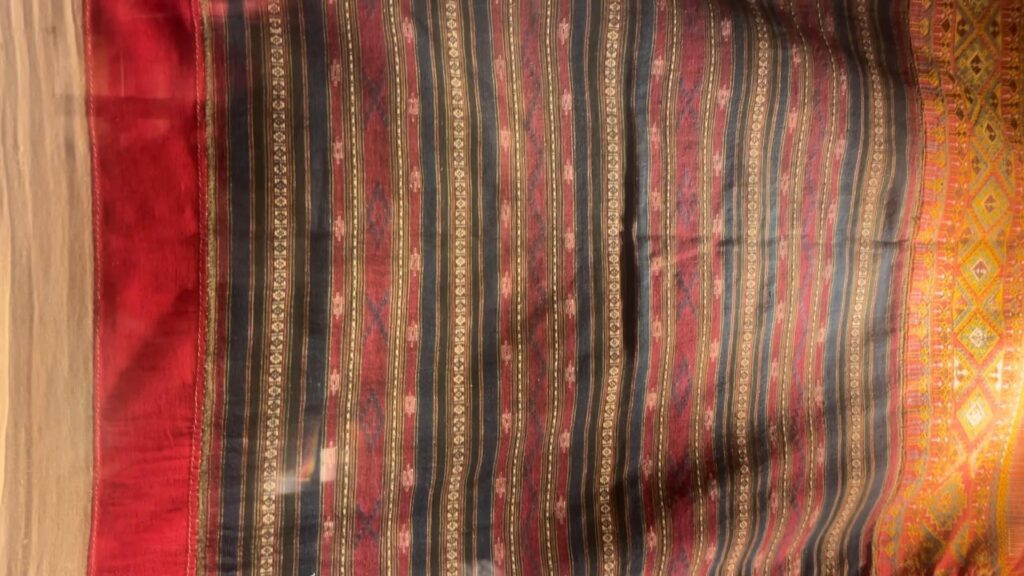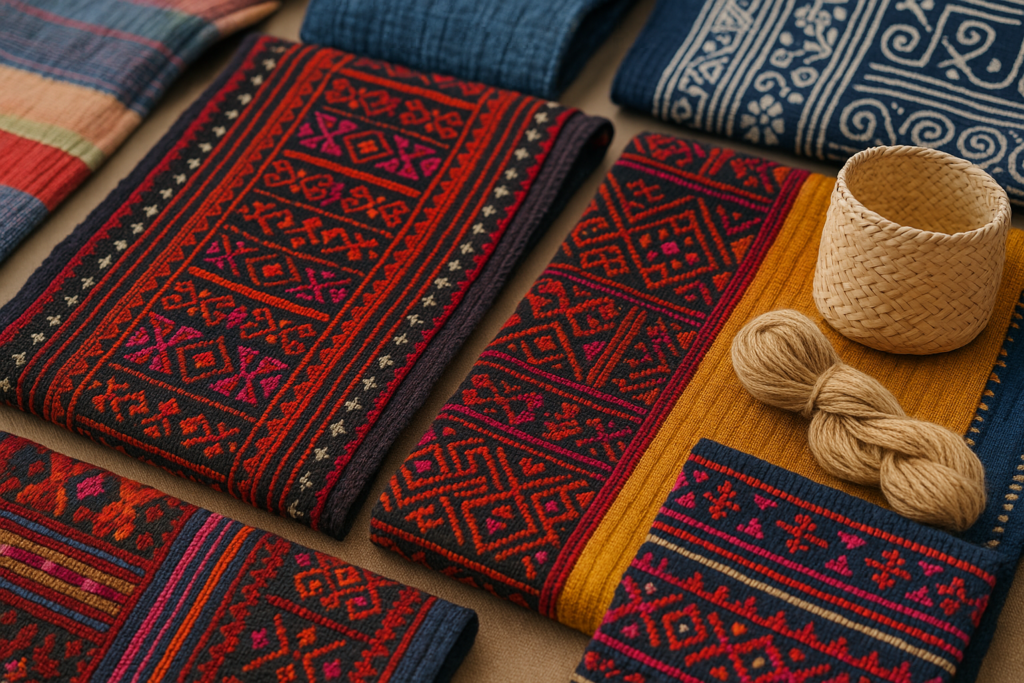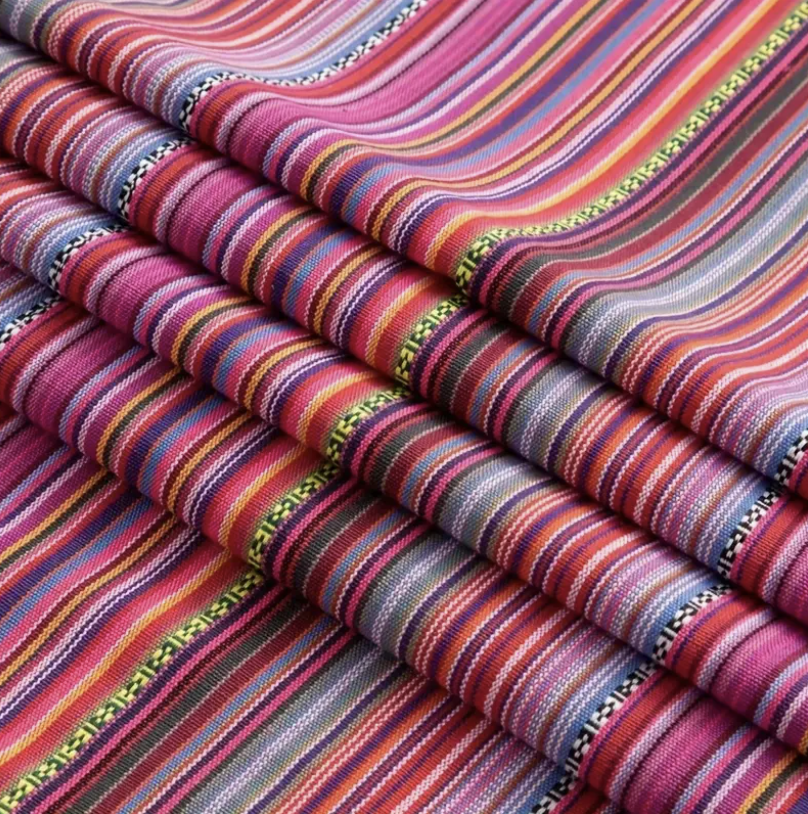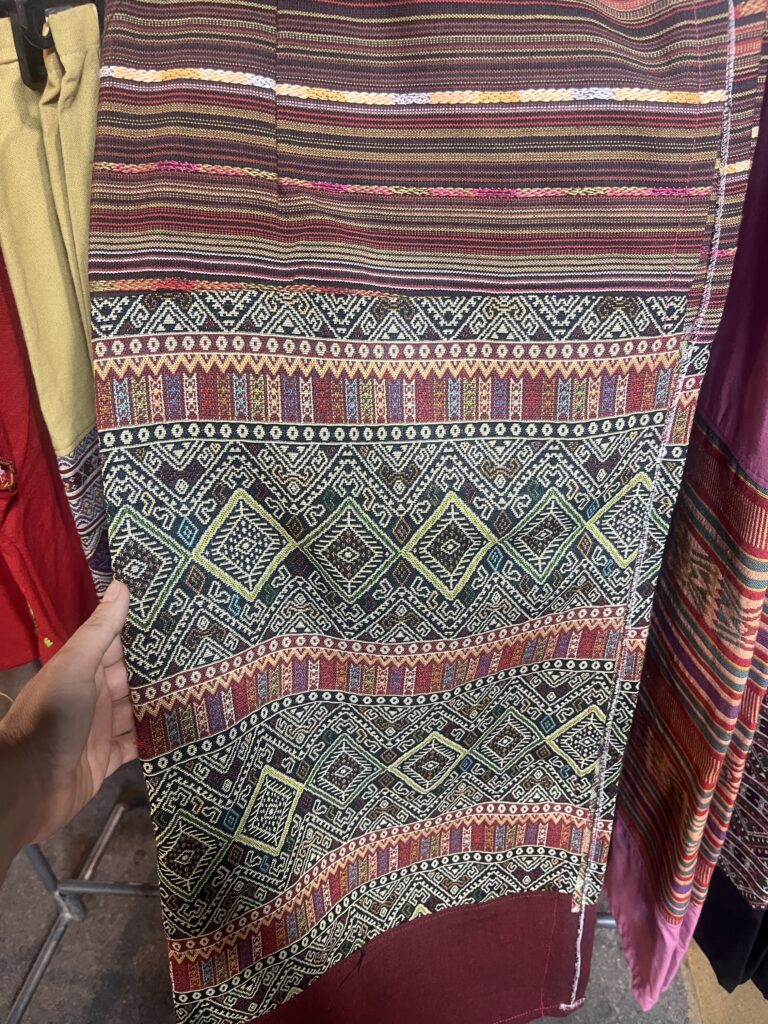Are Thai Artisan Textiles Sustainable?
Thai traditional textiles are more than artisan goods — they are living records of heritage, gendered labor, and rural economies. Ethical sourcing in Thailand ensures that weaving not only remains a craft but a form of cultural continuity. From the Mudmee silk of the Isaan region to the brocade-like Yok of the Central Plains, each fabric tells a story of region, ritual, and rhythm.
With roots stretching back over 3,000 years, Thai textiles have evolved through generations of practice, trade, and spiritual belief. Women across highland tribes such as the Karen, Phu Thai, Lahu, and Tai Lue continue to weave not just fabric, but identity, resilience, and ecological values.
Let me guide you through the world of Thai artisan textiles.

Are Thai Textiles Organic?
Yes — and no. Thai artisan textiles go beyond just being certified organic. Most are made from hand-harvested cotton or artisan hemp, dyed with plant-based indigo, turmeric, or bark extracts. These processes are often carried out by hill tribes, where workshops are run by families or small cooperatives.
Purchasing from these producers supports:
- Generational traditions
- Family-based rural livelihoods
- Low-impact, biodegradable materials
- A lifestyle that resists urban migration and plastic pollution
These textiles are often “organic” in essence, even if not certified — because many of these artisans have never heard of certification systems, nor do they need them to prove their authenticity.
How Are Thai Artisan Textiles Made?
Thailand hosts deeply localized weaving cultures. These villages are not just producers but custodians of technique and tradition:
- Ban Tha Sawang (Surin): Masters of golden brocade silk, used in royal ceremonies and high-end design
- Ban Nong Ngueak (Lamphun): Natural-dyed cotton weaving with a 200-year-old tradition
- Ban Phon (Kalasin): Phu Thai community renowned for Phrae Wa silk — the “Queen of Thai Silk”
Weaving is often done on backstrap looms, tied around the weaver’s waist and anchored to a tree. The result? Fabrics rich in pattern, story, and soul.
Core qualities include:
- Use of locally grown, organic fibers
- Natural dyes with minimal ecological impact
- Symbolic motifs embedded with spiritual meaning
- Cultural preservation through slow, ethical production
Each piece is seasonally produced, biodegradable, and rooted in community-based knowledge systems.

Can Artisan Thai Textiles Be Scaled?
This is the heart of the matter. Thai textiles — especially silk — have long been recognized, from beauty contests to royal garments. In Bangkok, some newer ateliers do try to scale production. But mass production is often far from sustainable.
Meanwhile in rural areas:
- Weaving activity is declining
- Cheap imitations flood tourist markets
- True artisans face difficulty passing on their craft
Yet it is still possible to source custom-made artisan fabrics that meet your production needs — without compromising ethics or traceability.
Why Thai Artisan Textiles Add Value to Your Brand
If your brand operates in slow fashion, wellness, interior design, or ethical gifting, Thai artisan textiles offer unmatched authenticity.
Here’s why:
- Differentiation: Every pattern is region-specific and story-rich
- Transparency: Direct, traceable supply chains — ethical sourcing in action
- Marketing Value: “Ethically sourced,” “handcrafted,” “natural dye,” “organic Asian textile” — keywords your audience responds to
- Brand Alignment: Reinforce values like climate care, craft heritage, and fair trade
A Note on Authenticity: Not All “Thai Textiles” Are Truly Thai
Online platforms like Temu or mass-market Etsy sellers often advertise “handmade Thai fabrics” that are actually machine-made, synthetic imitations. This mislabeling:
- Harms rural artisan incomes
- Damages buyer trust
- Devalues true craftsmanship
Authentic Thai textiles are:
- Handmade in small batches
- Produced with plant-based materials
- Regionally symbolic and ecologically sound
As a field-based sourcing consultant, I help brands avoid greenwashing by verifying origin, vetting materials, and guiding sustainable packaging.


Sustainable Sourcing as Rural Regeneration
Artisan sourcing can drive rural development. With consistent brand engagement, weaving becomes viable again.
When brands commit long-term, they:
- Create stable income in remote areas
- Preserve ancestral knowledge and artistry
- Encourage youth to stay or return to villages
- Strengthen female-led, cooperative economies
Ethical sourcing in Thailand can support reverse migration — bringing life and livelihood back to the countryside.
Why Work With a Consultant for Ethical Sourcing in Thailand
Sourcing in Southeast Asia is rich with opportunity — but also complexity. I help brands:
- Match product needs to producer capabilities
- Plan production timelines around seasonal and cultural rhythms
- Integrate climate literacy and sustainability alignment
- Bridge communication and build mutual trust
Sourcing isn’t just what you buy. It’s who you build with.
Let’s Talk Ethical and Sustainable Sourcing Strategy
Ready to explore how artisan organic textiles can elevate your product line and climate goals?
I offer consulting packages tailored to your needs — from sourcing trips and producer matching to long-term ethical sourcing strategies.
